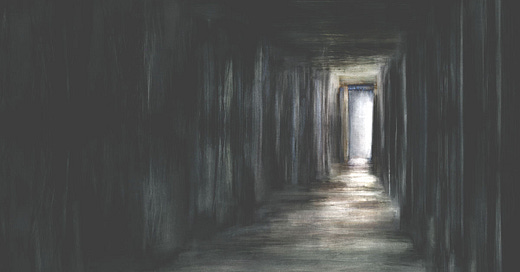“‘They can’t do that,’ she said finally. ‘It’s the one thing they can’t do. They can make you say anything—anything—but they can’t make you believe it. They can’t get inside you.’”
—Julia, 1984 (Kindle, paperback, hardcover, audiobook)
“Dr. Charles W. Mayo, a leading American physician and government representative, explained brainwashing in an official statement before the United Nations: ‘… the tortures used … although they include many brutal physical injuries, are not like the medieval torture of the rack and the thumb screw. They are subtler, more prolonged, and intended to be more terrible in their effect. They are calculated to disintegrate the mind of an intelligent victim, to distort his sense of values, to a point where he will not simply cry out “I did it!” but will become a seemingly willing accomplice to the complete disintegration of his integrity and the production of an elaborate fiction.’”
—Joost Meerloo, The Rape of the Mind: The Psychology of Thought Control, Menticide, & Brainwashing (Kindle, paperback, hardcover, audiobook)
Premeditatio Malorum
Premeditatio malorum—sometimes called negative visualisation—is the ancient Stoic practice of asking, “What’s the worst that could happen?” and then visualizing the potential outcomes as a way of building mental resilience.
Seneca writes of this strategy:
“If an evil has been pondered beforehand, the blow is gentle when it comes. To the fool, however, and to him who trusts in fortune, each event as it arrives, ‘comes in a new and sudden form,’ and a large part of evil, to the inexperienced, consists in its novelty. This is proved by the fact that men endure with greater courage, when they have once become accustomed to them, the things which they had at first regarded as hardships. Hence, the wise man accustoms himself to coming trouble, lightening by long reflection the evils which others lighten by long endurance.”
As should be obvious to anyone reading this given its effectiveness during the manufactured COVID crisis, the “shock and awe” factor is often the most devastating aspect of an emergency, so if we can circumvent that by anticipating the possibility, we will be better-positioned to withstand the pressures accompanying such a challenge. Seneca observes:
“What is quite unlooked for is more crushing in its effect, and unexpectedness adds to the weight of a disaster. This is a reason for ensuring that nothing ever takes us by surprise. We should project our thoughts ahead of us at every turn and have in mind every possible eventuality instead of only the usual course of events.… Rehearse them in your mind: exile, torture, war, shipwreck. All the terms of our human lot should be before our eyes.”
The following poem is a premeditatio malorum of sorts, both on behalf of myself and my fellow thoughtcriminals. While I hope none of us will ever be subjected to such tactics, perhaps contemplating how we might respond will prepare us psychologically should such a scenario ever arise.
Keep reading with a 7-day free trial
Subscribe to Margaret Anna Alice Through the Looking Glass to keep reading this post and get 7 days of free access to the full post archives.




